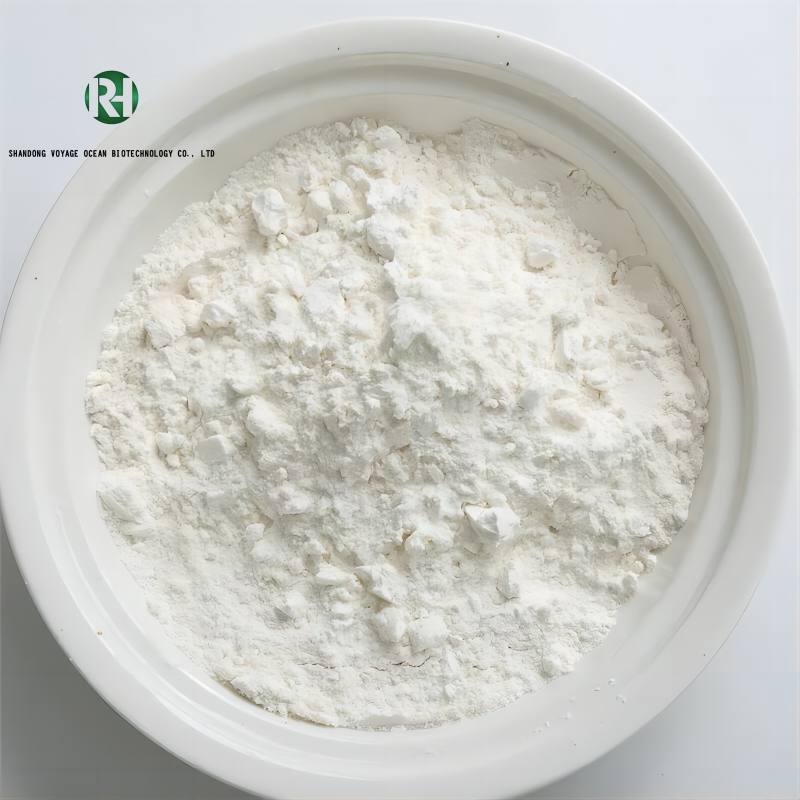Turn "cold tumor" into "hot tumor"! Modixafortide, a new CXCR4 antagonist of bilinerx, has a strong therapeutic effect on pancreatic cancer
-
Last Update: 2020-01-23
-
Source: Internet
-
Author: User
Search more information of high quality chemicals, good prices and reliable suppliers, visit
www.echemi.com
January 23, 2020 / Biovalley biolon / -- biolinerx is a clinical stage biopharmaceutical company focusing on the development of innovative oncology drugs Recently, the company announced that the triple combination treatment queue of the ongoing phase IIa combat / keynote-202 study has completed the enrollment of patients A total of 40 patients with unresectable stage IV metastatic pancreatic cancer (PDAC) who had progressed after receiving the first-line gemcitabine regimen were enrolled into the triple treatment cohort with the second-line pancreatic cancer as the focus In the study, the cohort will receive chemotherapy (onivyde / 5-FU / leucovorin, irinotecan liposome / 5-fluorouracil / l-folic acid calcium), keytruda (Coretta, pabolizumab) and motixafortide triple therapy until the disease progresses The primary end points were objective response rate (ORR), secondary end points included overall survival (OS), progression free survival (PFS), and disease control rate (DCR) Last month, preliminary data released by the company at the ESMO IO meeting showed that of the 22 assessable patients, the Orr and DCR of triple therapy were 32% and 77%, respectively This data is favorable compared with the current standard care for second-line patients (ORR = 17%, DCR = 52%) In addition, the median duration of clinical benefit was 7.8 months in 17 patients with controlled disease (7 with partial remission and 10 with stable disease), compared with about 3 months in other therapies for second-line pancreatic cancer Mechanism of modixafortide: to change "cold" tumor into "hot" tumor, modixafortide targets CXCR4, which is a chemokine receptor and a proven therapeutic target It is overexpressed in many human cancers, including PDAC CXCR4 plays a key role in tumor growth, invasion, angiogenesis, metastasis and treatment resistance Overexpression of CXCR4 is related to poor prognosis Motif afortide is a short synthetic peptide, which is used as a platform for cancer treatment It has unique functions and has the potential to become the best CXCR4 antagonist of its kind Motif a fortide shows high affinity, long receptor occupancy and acts as a reverse agonist In many clinical and preclinical studies, modixafortide has been shown to affect "cold" tumors in a variety of modes of action, including immune cell migration, tumor invasion by immune effector T cells, reduction of immunosuppressive cells (such as MDSCs) in tumor microenvironment, and "cold" tumors (e.g pancreatic cancer) become "hot" (i.e., make them sensitive to immunosuppressive agents and chemotherapy) Motixafortide is a leading project of biolinerx company, which is a cancer treatment platform Currently, it is cooperating with MSD to carry out phase IIa research and evaluate the triple combination of motixafortide + keytruda + chemotherapy In addition, modixafortide is also in the process of a phase IIB study (consolidation of acute myeloid leukemia [AML]) and a phase III study (stem cell mobilization in autogenous bone marrow transplantation) At the same time, the company is also working with Roche's gene tektec to evaluate the combination therapy of modixafortide and tecentriq (tezolizumab, atzumab) in two phase Ib / II solid tumor studies In addition to motif afortide, biolinerx is also developing a second oncology project, agi-134, which is an immunotherapy for a variety of solid tumors and is currently in phase I / IIa clinical practice Source of original text: bilinerx completed acceptance in triple combination arm of combat / keynote-202 study in patients with second-line metastatic pancreatic cancer
This article is an English version of an article which is originally in the Chinese language on echemi.com and is provided for information purposes only.
This website makes no representation or warranty of any kind, either expressed or implied, as to the accuracy, completeness ownership or reliability of
the article or any translations thereof. If you have any concerns or complaints relating to the article, please send an email, providing a detailed
description of the concern or complaint, to
service@echemi.com. A staff member will contact you within 5 working days. Once verified, infringing content
will be removed immediately.







